Life
Sign up for our newsletter
We summarize the week's scientific breakthroughs every Thursday.
-
 Humans
HumansEven without concussions, just one football season may damage players’ brains
A group of college football players underwent brain scans after a season of play. The results suggest the sport could impact neural signaling.
-
 Neuroscience
NeurosciencePlants don’t have feelings and aren’t conscious, a biologist argues
The rise of the field of “plant neurobiology” has this scientist and his colleagues pushing back.
-
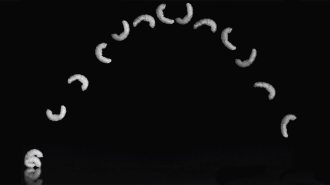 Life
LifeHow these tiny insect larvae leap without legs
High-speed filming reveals how a blob of an insect can leap more efficiently than it crawls.
By Susan Milius -
 Life
LifeWhy people with celiac disease suffer so soon after eating gluten
In people with celiac disease, some T cells release immune chemicals within hours of encountering gluten, triggering the fast onset of symptoms.
-
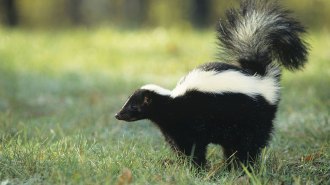 Chemistry
ChemistryA fungus makes a chemical that neutralizes the stench of skunk spray
A compound produced by fungi reacts with skunk spray to form residues that aren’t offensive to the nose and can be more easily washed away.
-
 Earth
EarthDecades of dumping acid suggest acid rain may make trees thirstier
Acidified soil loses calcium, which can affect trees’ ability to hang on to water.
-
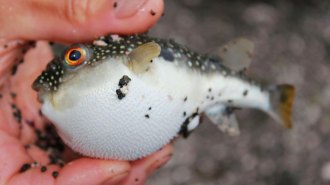 Animals
AnimalsThere’s more to pufferfish than that goofy spiked balloon
Three odd things about pufferfishes: how they mate, how they bite and what’s up with no fish scales?
By Susan Milius -
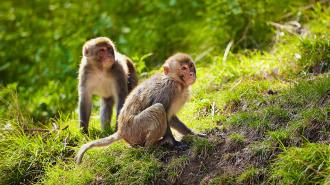 Life
LifeMonkeys can use basic logic to decipher the order of items in a list
Rhesus macaque monkeys don’t need rewards to learn and remember how items are ranked in a list, a mental feat that may prove handy in the wild.
By Bruce Bower -
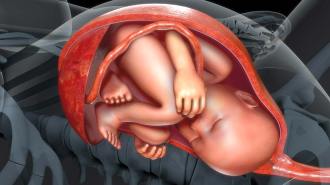 Health & Medicine
Health & MedicineA new study challenges the idea that the placenta has a microbiome
A large study of more than 500 women finds little evidence of microbes in the placenta, contrary to previous reports on the placental microbiome.
-
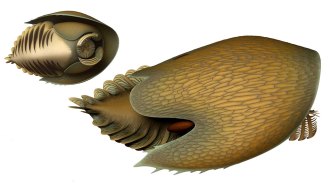 Paleontology
PaleontologyThis newfound predator may have terrorized the Cambrian seafloor
A newly discovered spaceship-shaped predator raked through the Cambrian seafloor in search of food.
-
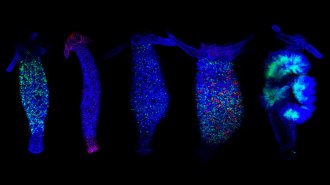 Life
LifeMapping how the ‘immortal’ hydra regrows cells may demystify regeneration
In the continually regenerating hydra, fluorescent markers help researchers track stem cells on the way to their cellular fate.
-
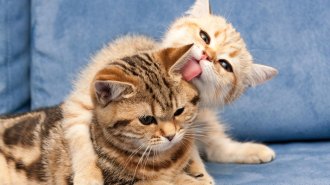 Life
LifeGiving cats food with an antibody may help people with cat allergies
Research by pet-food maker Purina aims to disable the major allergen carried in cat saliva, a protein called Fel d1.